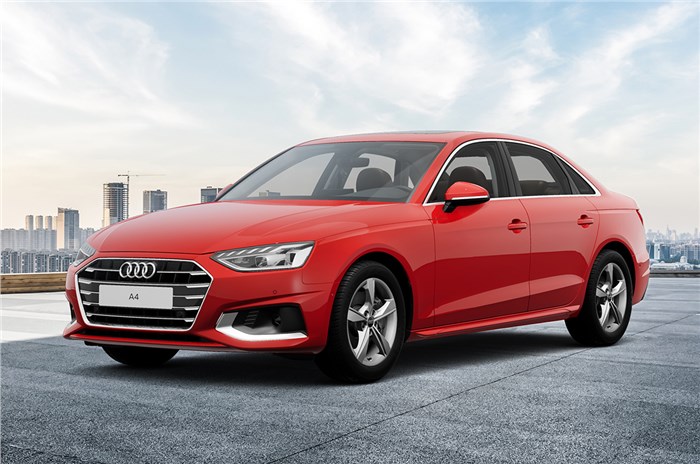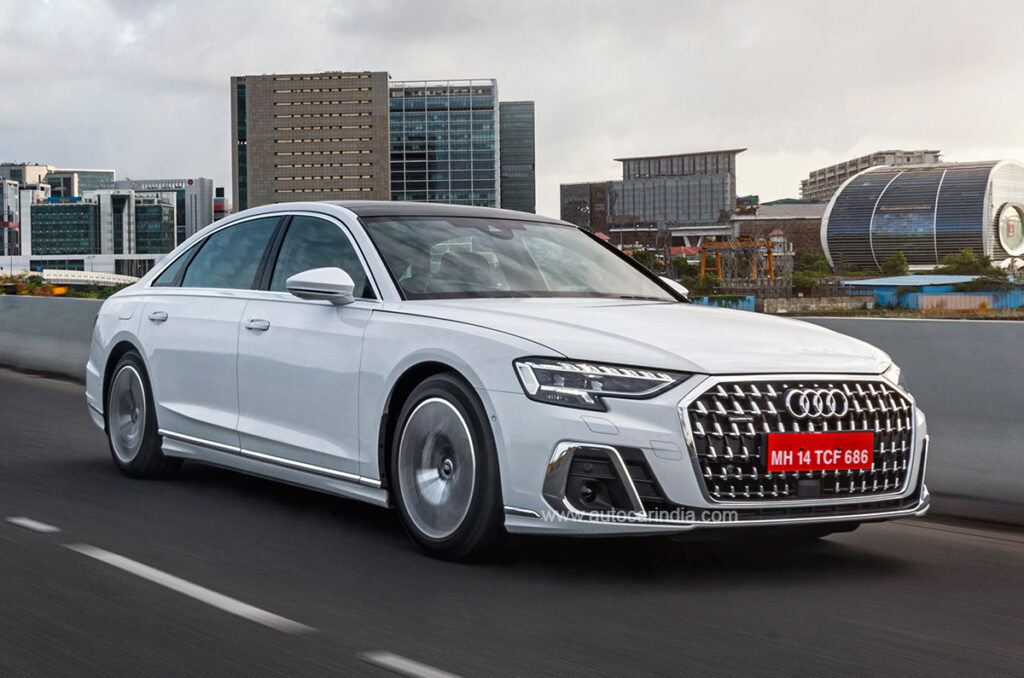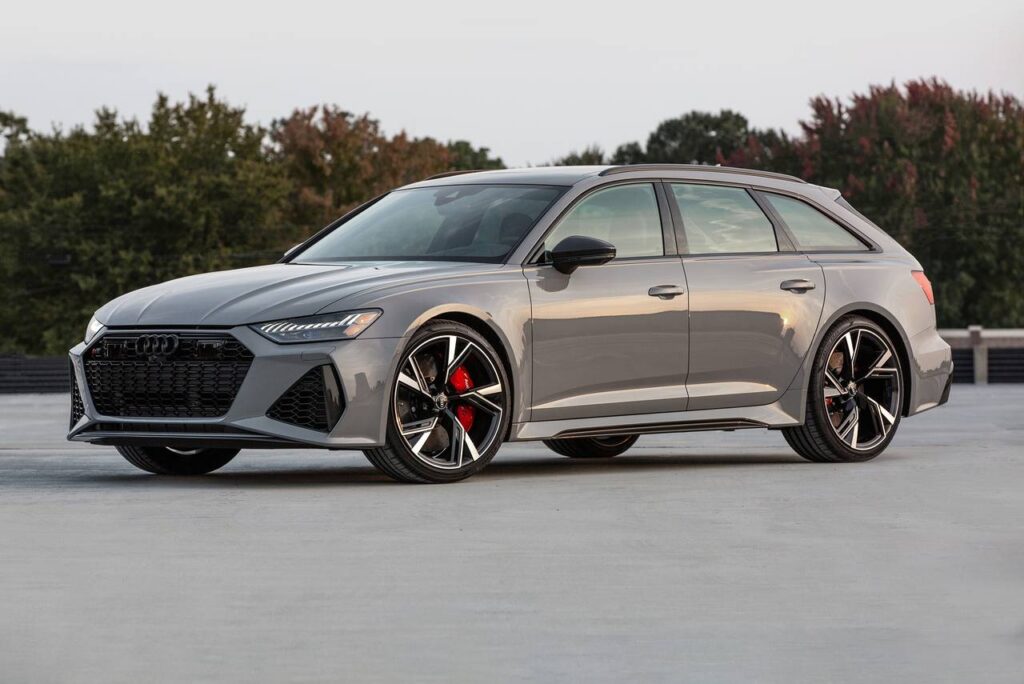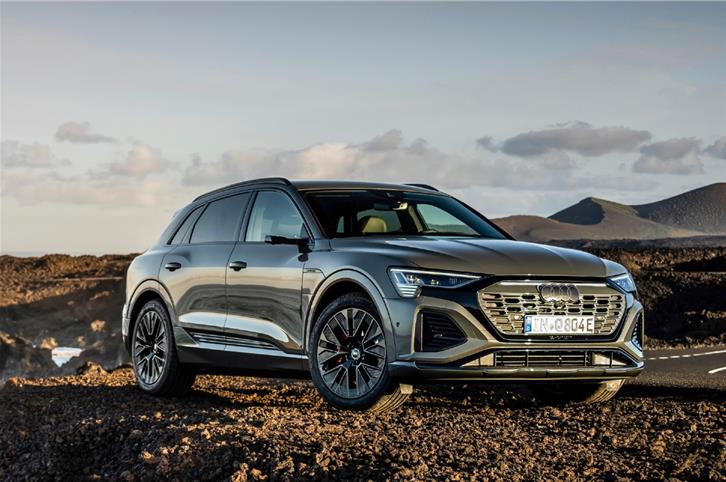Audi is a renowned German automobile manufacturer that specializes in producing luxury vehicles. Established in 1909, the company has a long and prestigious history in the automotive industry. Audi is recognized for its commitment to innovation, engineering excellence, and high-quality craftsmanship, making it a prominent player in the global market.
Audi’s brand philosophy revolves around the principle of “Vorsprung durch Technik,” which translates to “Advancement through Technology.” This motto reflects the company’s dedication to pushing the boundaries of automotive engineering and introducing cutting-edge technologies in its vehicles. Audi consistently strives to deliver a seamless blend of performance, comfort, and advanced features to provide an exceptional driving experience.
The Audi lineup encompasses a wide range of models, including sedans, coupes, SUVs, and electric vehicles. Each Audi vehicle boasts elegant and modern designs that incorporate the brand’s signature elements, such as the iconic Singleframe grille and distinctive LED lighting. The company places a strong emphasis on aerodynamics and efficient use of materials, resulting in vehicles that are both visually striking and highly functional.
In terms of performance, Audi offers a diverse selection of engines, from efficient and powerful gasoline and diesel engines to cutting-edge electric and hybrid powertrains. The company’s Quattro all-wheel-drive system has become synonymous with superior traction, providing enhanced stability and handling across various driving conditions. Audi’s commitment to performance is evident in its high-performance models, such as the Audi RS line, which delivers exhilarating power and sporty dynamics.
Audi also places great importance on technological advancements and connectivity features. The brand’s vehicles are equipped with state-of-the-art infotainment systems, intuitive interfaces, and driver assistance technologies to enhance safety, convenience, and entertainment. Audi has been at the forefront of autonomous driving technology, with its models featuring advanced driver-assistance systems that pave the way towards a future of autonomous mobility.
Furthermore, Audi has been actively investing in electric mobility and sustainable solutions. The company has introduced a range of electric vehicles under the Audi e-tron line, offering emission-free driving without compromising on performance or luxury. Audi is committed to advancing electric mobility and expanding its portfolio of electrified vehicles, aligning with the global shift towards sustainable transportation.
Glorious History of Audi
The history of Audi dates back to the early 20th century when it was founded by August Horch in Zwickau, Germany, in 1909. August Horch was a visionary automotive engineer who had previously established two other automobile companies, but due to a trademark dispute, he was forced to leave his own name behind. To continue his passion for automotive manufacturing, he chose the Latin translation of his last name, “Horch,” which means “listen” in German, and thus, Audi Automobilwerke GmbH Zwickau was born.

In its early years, Audi quickly gained recognition for its advanced engineering and innovative designs. The first Audi automobile, the Type A, was launched in 1910 and featured a 2.6-liter four-cylinder engine, providing impressive performance for the time. Audi’s commitment to technology was evident, and the company soon became known for its high-quality vehicles.
In 1928, Audi merged with three other German automakers—Horch, DKW, and Wanderer—to form Auto Union AG, creating a strong alliance that would shape the future of the brand. The four interlocking rings in the Auto Union logo symbolized the unity of these four companies. During this period, Audi continued to introduce new models and innovations, including front-wheel drive and the development of the legendary Auto Union Grand Prix racing cars, which achieved significant success in motorsports.
However, the turbulent times of World War II and its aftermath brought significant challenges to Audi and the entire German automotive industry. Following the war, Auto Union’s factories were located in the Soviet-controlled sector, and the company faced nationalization and limited resources. It was not until 1949 that Auto Union AG was reestablished in West Germany, with production initially focused on motorcycles and compact cars.
In the 1960s, Auto Union AG was acquired by the Volkswagen Group, which recognized the potential of the Audi brand. The merger marked a turning point for Audi, as it gained access to Volkswagen’s resources, technologies, and global distribution network. Under Volkswagen’s ownership, Audi experienced a revitalization and began to emerge as a leading luxury automobile manufacturer.
The 1970s witnessed a significant breakthrough for Audi with the introduction of the Audi 80 and Audi 100 models. These vehicles showcased Audi’s advancements in aerodynamics, safety, and comfort, and helped establish the brand’s reputation for producing refined and well-engineered cars.
In the 1980s, Audi made a groundbreaking technological leap with the introduction of its legendary Quattro all-wheel-drive system. The Quattro system revolutionized the automotive industry by providing superior traction and stability, enhancing both performance and safety. Audi’s dominance in rally racing further solidified the brand’s image as a pioneer in all-wheel-drive technology.
By the 1990s, Audi had established itself as a formidable player in the luxury segment. The company continued to innovate and expand its product range, introducing the stylish Audi A4, the executive Audi A6, and the flagship Audi A8. Audi’s commitment to progressive design and cutting-edge technology became even more apparent during this period.
In the 2000s, Audi embarked on a strategy of global expansion, increasing its presence in various markets worldwide. The brand’s success was further propelled by its lineup of sporty and performance-oriented models, including the Audi TT and the high-performance Audi RS line. Audi’s design language also evolved during this time, characterized by clean lines, dynamic shapes, and the distinctive Singleframe grille.
In recent years, Audi has placed significant emphasis on electric mobility and sustainable solutions. The company launched its dedicated electric vehicle sub-brand, Audi e-tron, and introduced the Audi e-tron SUV and Audi e-tron GT, showcasing its commitment to emission-free driving without compromising on performance or luxury. Audi continues to invest in electric and hybrid technology, aiming to provide a wide range of electrified options in its lineup.
Today, Audi stands as a globally recognized luxury brand, admired for its sophisticated design, technological innovations, and driving dynamics. The company continues to push the boundaries of automotive engineering and redefine the future of mobility with its commitment to electric vehicles, connectivity, and autonomous driving technologies.
Iconic Models of Audi
Audi has produced several iconic models throughout its history that have left a lasting impression on the automotive industry and solidified the brand’s reputation for engineering excellence and luxury. Let’s explore some of these iconic Audi models in detail:
Audi Quattro (1980-1991): The Audi Quattro is arguably one of the most significant models in the brand’s history. Introduced in 1980, it revolutionized the automotive world with its groundbreaking all-wheel-drive system. The Quattro system provided exceptional traction and handling, giving Audi a competitive edge in rallying and setting the stage for future success. The Quattro also featured a turbocharged five-cylinder engine, distinctive boxy styling, and aggressive fender flares, making it an instant icon.

Audi A4 (1994-present): The Audi A4, first introduced in 1994 as a successor to the Audi 80, has been a cornerstone of the brand’s lineup. Known for its elegant design, impeccable build quality, and dynamic performance, the A4 has consistently been a best-selling model for Audi. It has evolved over the years, offering a range of engines, including efficient diesel and powerful gasoline options. The A4 showcases Audi’s commitment to blending luxury, technology, and driving pleasure into a well-rounded package.

Audi TT (1998-present): The Audi TT is a compact sports car that made its debut in 1998, instantly capturing attention with its distinctive Bauhaus-inspired design. The TT’s curvaceous lines, aluminum body construction, and iconic round wheel arches made it a design icon of its time. Beyond its stunning aesthetics, the TT also offered agile handling and spirited performance, appealing to enthusiasts. Over the years, the TT has undergone updates and redesigns, maintaining its status as a symbol of Audi’s commitment to blending style and performance.

Audi R8 (2006-present): The Audi R8 is the pinnacle of Audi’s performance lineup. Introduced in 2006, it was Audi’s first production mid-engine sports car. Inspired by Audi’s success in motorsports, the R8 boasts a striking design, with a sleek and aerodynamic body. Its naturally aspirated V10 engine delivers exhilarating performance, and the advanced Quattro all-wheel-drive system ensures exceptional traction. The R8 has become synonymous with Audi’s commitment to performance, showcasing the brand’s expertise in engineering and motorsport heritage.

Audi A8 (1994-present): The Audi A8 is the flagship luxury sedan of the Audi lineup. Since its introduction in 1994, the A8 has represented the pinnacle of comfort, technology, and sophistication. Known for its elegant and understated design, the A8 features luxurious interiors with advanced infotainment systems and driver assistance technologies. The A8 offers a range of powerful engines, including hybrid options, to deliver a refined and effortless driving experience. It serves as a showcase of Audi’s commitment to luxury, craftsmanship, and innovation.

Audi RS6 Avant (2002-present): The Audi RS6 Avant is a high-performance wagon that was introduced in 2002. It is powered by a 4.0-liter twin-turbocharged V8 engine that produces 591 horsepower, and it can accelerate from 0 to 60 mph in just 3.6 seconds. The RS6 Avant is a popular choice for celebrities and sports stars, and it has been featured in several movies and television shows.

Audi e-tron (2018-present): With the rise of electric mobility, the Audi e-tron represents the brand’s foray into sustainable and emission-free driving. The e-tron is a fully electric SUV that combines Audi’s renowned luxury and performance with electric power. It offers a spacious and technologically advanced interior, impressive driving range, and fast charging capabilities. The e-tron showcases Audi’s commitment to electric mobility, highlighting the brand’s vision for a sustainable future.

These are just a few of the most iconic Audi models. Audi has a long history of producing high-quality cars, and its models are known for their sleek design, powerful engines, and luxurious interiors. These iconic Audi models have not only contributed to the brand’s success but have also left a lasting impact on the automotive industry. They embody Audi’s values of performance, innovation, and luxury, and continue to inspire automotive enthusiasts around the world.
Why is Audi considered as so iconic around the world? – Success Factors of Audi
Audi is considered iconic around the world for several reasons, which have contributed to the brand’s reputation for excellence, innovation, and luxury. Let’s explore these factors in detail:
Design Excellence: Audi has consistently demonstrated a commitment to design excellence, creating vehicles that are visually striking, modern, and timeless. The brand’s design philosophy emphasizes clean lines, precise proportions, and attention to detail. Audi’s iconic elements, such as the Singleframe grille, distinctive LED lighting, and muscular body contours, have become synonymous with the brand’s identity. The consistent pursuit of aesthetic perfection has made Audi vehicles instantly recognizable and admired worldwide.
Technological Innovation: Audi is renowned for its technological innovations, consistently pushing the boundaries of automotive engineering. The brand has a long history of introducing groundbreaking technologies, such as the Quattro all-wheel-drive system, lightweight construction methods, and advanced driver-assistance systems. Audi has also been at the forefront of connectivity and infotainment advancements, integrating intuitive interfaces, digital instrument clusters, and cutting-edge connectivity features. This dedication to innovation has earned Audi a reputation for being at the forefront of automotive technology.
Performance and Driving Dynamics: Audi has a strong performance heritage, and its vehicles are known for their dynamic driving experience. From the responsive handling of its sporty models to the exhilarating power of its high-performance variants, Audi has consistently delivered exceptional driving dynamics. The Quattro all-wheel-drive system, initially introduced in the iconic Audi Quattro, has become a symbol of superior traction, enhancing both performance and safety. Audi’s commitment to performance has resulted in numerous victories in motorsports, further solidifying its reputation.
Luxury and Craftsmanship: Audi has established itself as a leading luxury brand, offering a combination of opulent interiors, premium materials, and exceptional craftsmanship. The brand’s attention to detail is evident in every aspect of its vehicles, from meticulously crafted cabins to the smooth operation of controls. Audi consistently delivers a refined and luxurious experience, focusing on comfort, convenience, and high-quality finishes. The brand’s commitment to luxury has resonated with discerning customers worldwide, making Audi a symbol of prestige and sophistication.
Brand Heritage and Legacy: Audi’s rich heritage and legacy contribute to its iconic status. The brand has a long and storied history that dates back over a century, with significant milestones, such as the success in motorsports and the pioneering developments in technology. Audi’s legacy of innovation, combined with its ability to adapt and evolve with the changing times, has solidified its position as a respected and iconic automotive brand.
Global Presence and Recognition: Audi has established a strong global presence and enjoys recognition and admiration from enthusiasts and customers worldwide. The brand’s vehicles are sold in numerous countries, and Audi has built a robust network of dealerships, ensuring accessibility to its products and services. The strong brand reputation, supported by consistent quality, performance, and innovation, has resulted in a loyal and dedicated customer base, further contributing to its iconic status.
In summary, Audi’s iconic status stems from its commitment to design excellence, technological innovation, performance, luxury, brand heritage, and global recognition. The brand’s relentless pursuit of automotive perfection has elevated it to an esteemed position in the industry, captivating enthusiasts and setting benchmarks for others to follow.
Marketing Strategies of Audi
Audi has implemented various marketing strategies to establish and maintain its position as a leading luxury automotive brand. These strategies encompass a range of approaches, including brand positioning, advertising campaigns, digital marketing, sponsorship, and customer engagement. Let’s delve into these strategies in detail:
Brand Positioning: Audi has carefully positioned itself as a brand that combines luxury, performance, and technological innovation. The brand consistently emphasizes its core values of design, engineering excellence, and progressive technology. Audi’s marketing efforts focus on creating a perception of exclusivity, sophistication, and cutting-edge automotive advancements.
Advertising Campaigns: Audi is known for its captivating and memorable advertising campaigns. The brand has produced a series of visually stunning and emotionally engaging commercials that highlight Audi’s design, performance, and technological features. Audi’s advertisements often incorporate storytelling elements that evoke a sense of excitement, showcasing the brand’s commitment to delivering an exceptional driving experience.
Digital Marketing: Audi recognizes the significance of digital marketing in reaching and engaging with its target audience. The brand utilizes various digital channels, including social media platforms, websites, and online advertising, to connect with customers and promote its products. Audi leverages the power of social media to showcase its vehicles, share engaging content, and interact with enthusiasts. The brand also employs targeted online advertising to reach specific customer segments and generate leads.
Sponsorship and Partnerships: Audi has strategically engaged in sponsorships and partnerships to enhance its brand visibility and association with premium lifestyles. The brand has been involved in high-profile sports sponsorships, such as motorsports, football, and golf. For instance, Audi has been a prominent participant in the FIA World Endurance Championship and the Deutsche Tourenwagen Masters (DTM) racing series. These sponsorships align with Audi’s performance heritage and allow the brand to showcase its technological advancements and performance capabilities to a global audience.
Customer Engagement and Experiences: Audi places great emphasis on creating meaningful customer experiences. The brand organizes various events, such as test drives, exclusive previews, and product launches, to engage with existing and potential customers. Audi also offers brand experience centers and showrooms where customers can explore the brand’s vehicles, interact with Audi experts, and immerse themselves in the Audi brand world. These customer engagement initiatives aim to foster loyalty, build relationships, and provide an opportunity for customers to connect with the brand on a deeper level.
Brand Ambassadors: Audi has utilized the power of influential individuals as brand ambassadors to enhance its brand image and reach. The brand has collaborated with well-known celebrities, sports personalities, and influential figures who align with Audi’s values and target audience. By associating with these brand ambassadors, Audi strengthens its appeal and creates a sense of aspirational lifestyle and achievement.
Overall, Audi’s marketing strategies focus on delivering a premium brand experience, showcasing technological innovation, and engaging with target consumers on emotional and aspirational levels. By effectively conveying its brand values and differentiating factors, Audi aims to attract and retain loyal customers in the competitive automotive industry.
Also Read: Mastering the Road: The Iconic Journey of BMW
Financials of Audi over the years
Audi has been on a steady financial growth path over the years. In 2021, the company’s revenue reached a record €53.1 billion, up 6.2% from the previous year. Operating profit also increased by 100% to €5.5 billion. This was due to a number of factors, including strong pricing, the very good market performance of the Q3, Q5, e-tron product line and Lamborghini and Ducati brands, and the remeasurement of commodities.
In 2022, Audi’s financial performance continued to improve. Revenue rose 16.4% to a record €61.8 billion, while operating profit climbed nearly 40% to an all-time high of €7.6 billion. The operating margin rose from last year’s 10.4% to 12.2%, and net cash flow reached €4.8 billion, the second-highest figure in the company’s history.
These record results were driven by a number of factors, including strong market performance, the positive effects of securing raw materials, and the company’s focus on innovation and sustainability. Audi is committed to becoming a leading provider of connected, fully electric premium mobility, and its investments in these areas are paying off.
In the first quarter of 2023, Audi continued to see strong financial performance. Revenue increased by 10.8% to €16.9 billion, while operating profit rose by 10.6% to €1.8 billion. The operating margin was 10.8%.
These results are a testament to Audi’s strong brand, its focus on innovation, and its commitment to sustainability. The company is well-positioned for continued financial growth in the years to come.
Here are some of the key factors that have contributed to Audi’s financial growth over the years:
- Strong brand reputation: Audi is one of the most respected luxury car brands in the world. Its cars are known for their high quality, performance, and design.
- Focus on innovation: Audi is constantly investing in new technologies and features. This has helped the company to stay ahead of the competition and attract new customers.
- Commitment to sustainability: Audi is committed to reducing its environmental impact. The company is investing in electric vehicles and other sustainable technologies.
These factors have helped Audi to achieve record financial results in recent years. The company is well-positioned for continued growth in the years to come.
To read more content like this, subscribe to our newsletter




